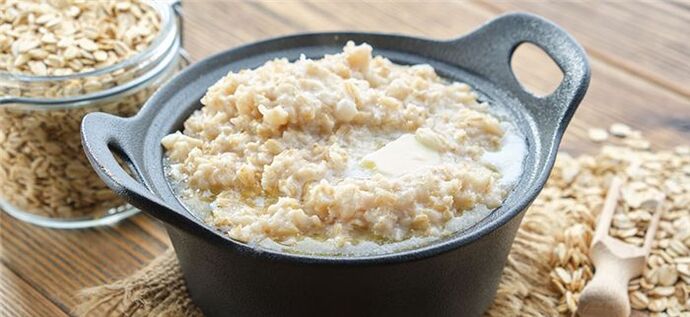Diet is the most important treatment direction for gastric ulcer
What to eat if you have gastric ulcer
- Food should not irritate the mucous membranes and increase the acidity of gastric juices.
- You should only eat easily digestible liquid, pureed, crushed foods and chew them slowly.
- It is forbidden to eat hot or cold foods, as such dishes interfere with the formation of enzymes and slow down the recovery of the mucous membranes. Optimum temperature is 26 to 33 °C.
- You need to eat small, frequent meals and take breaks of no more than three hours. The regularity of meals depends on the severity of the condition, ranging from five to eight times a day.
- Mode of drinking - 1. 5 to 2 liters per day.
Table 1 - Diet for Exacerbation of Gastric Ulcer
Stomach ulcers - symptoms and treatment

Definition of disease. disease cause
Causes of gastric ulcer
- Excessive nervous-emotional tension (stress);
- Violation of daily habits and nutrition, consumption of refined foods and fast food;
- Complex genetics (for example, a parent with peptic ulcer disease).
gastric ulcer symptoms
Complications of gastric ulcer
- lowered blood pressure;
- rapid pulse;
- Skin becomes pale and covered with sweat;
- increased weakness;
- Shortness of breath persists despite reduced physical activity.
Diagnosis of gastric ulcer
gastric ulcer treatment
forecast. prevention
- basic- When there is no disease but there is a risk of disease;
- middle school- Aims to prevent the progression of existing diseases;
- third- Performed after complications arise.
- Stick to a certain daily caloric intake: carbohydrates - 50% or more, protein - 30%, fat - 15-20%. It is important to consider physical activity, height and weight. You need to eat often, in small amounts more often. Eliminate "hunger" and "monodiet". It is highly unfavorable to consume alcohol, soda, fat, fried, smoked food, canned food and fast food. It is recommended to eat oatmeal, soup, boiled meat and fish, vegetables and fruits. Baked goods and sweets are allowed in moderation.
- Adhere to a healthy lifestyle: quit bad habits, exercise more, and get at least 7 hours of sleep every night. Avoid stressful situations and learn to perceive them correctly.
- As part of your physical check-up, see your doctor regularly and eliminate chronic infections, including prompt treatment of dental caries, as it lowers overall immunity and makes you more susceptible to any infection, including Helicobacter pylori.
- Starting at age 25, have a planned comprehensive endoscopy every two years - an endoscopy to detect Helicobacter pylori.
- Follow diet number one strictly. Avoid rough foods that are difficult to digest, meat, fish and mushroom soups, strong tea and coffee, baked goods, chocolate, fresh sour fruits, spicy vegetables - turnips, turnips, turnips, onions. Food should be steamed, boiled or baked in puree form (without crusting). It should be warm: neither cold nor hot. Portions should be small. It is recommended to drink mineral water, which can reduce gastric acidity.
- Eliminate any causes of worsening ulcers, such as chronic gastritis.
- Follow medical instructions carefully.














































































